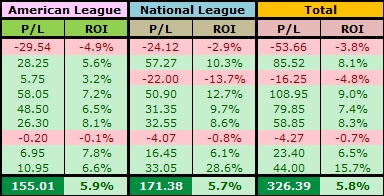The 2022 MLB season is over with the Houston Astros winning the World Series by four games to two over the Philadelphia Phillies. It was an interesting season, with the Phillies reaching the final despite finishing third in their Division behind two teams winning over 100 games. The Astros were the best team in the American League though, so their success wasn't such a surprise, but with four teams winning 100 games for only the second time in history, and the New York Yankees only one short on 99, it's not surprising that there were a record number of 'hot' favorites this season.
Four years ago, betting on live sports was illegal in most of the United States. Now, fans watching games or attending them at stadiums are barraged with advertisements encouraging them to bet on matchups, not just watch as spectators.
This transformation in sports betting started nearly a decade ago, at first with the explosion of wagering on fantasy sports. Then in 2018, the Supreme Court cleared the way for states to legalize wagers on live games. Today, 31 states and Washington, D.C., permit sports gambling either online or in person, and five more states have passed laws that will allow such betting in the future. Professional sports in the U.S. now are part of a multibillion-dollar corporate gambling enterprise.
This shift represents the largest expansion of gambling in United States history.
At least $161 billion in wagers have been placed since sports betting was broadly legalized in the United States. This explosion of gambling is just the start. Betting companies have made clear that the ultimate goal is to bring so-called iGaming to states across the nation, where customers can use their mobile phones to play blackjack, poker and other casino-style games.
California is one of the minority of states with no legal sports betting, but TV shows now openly discuss odds, lines and totals, and 'bad beats' are often featured and while sports betting has always been a part of life here, it's never been so openly discussed.
When the last World Cup was played, just three states (Nevada, New Jersey, Delaware) had legal sports betting markets, but for the current one:20.5 million American adults plan to bet $1.8 billion on the 2022 World Cup, per a new report from the American Gaming Association. Three in 10 (29%) of American adults who plan to watch the World Cup intend to wager on the tournament.
If given $50 to bet, most Americans would put their money on the U.S. (24%) to win...
Systems that have worked well for several years in the NBA and NHL are also off to poor starts this season, but touch wood, American Football seems to be its usual self. It's unlikely I'll get to see a game live while I'm here, but with Friday being a holiday for most Americans, and the game starting at 11am local time here, bars should be lively for the US v England game. Whether or not my wife will still be talking to me afterwards remains to be seen.




No comments:
Post a Comment